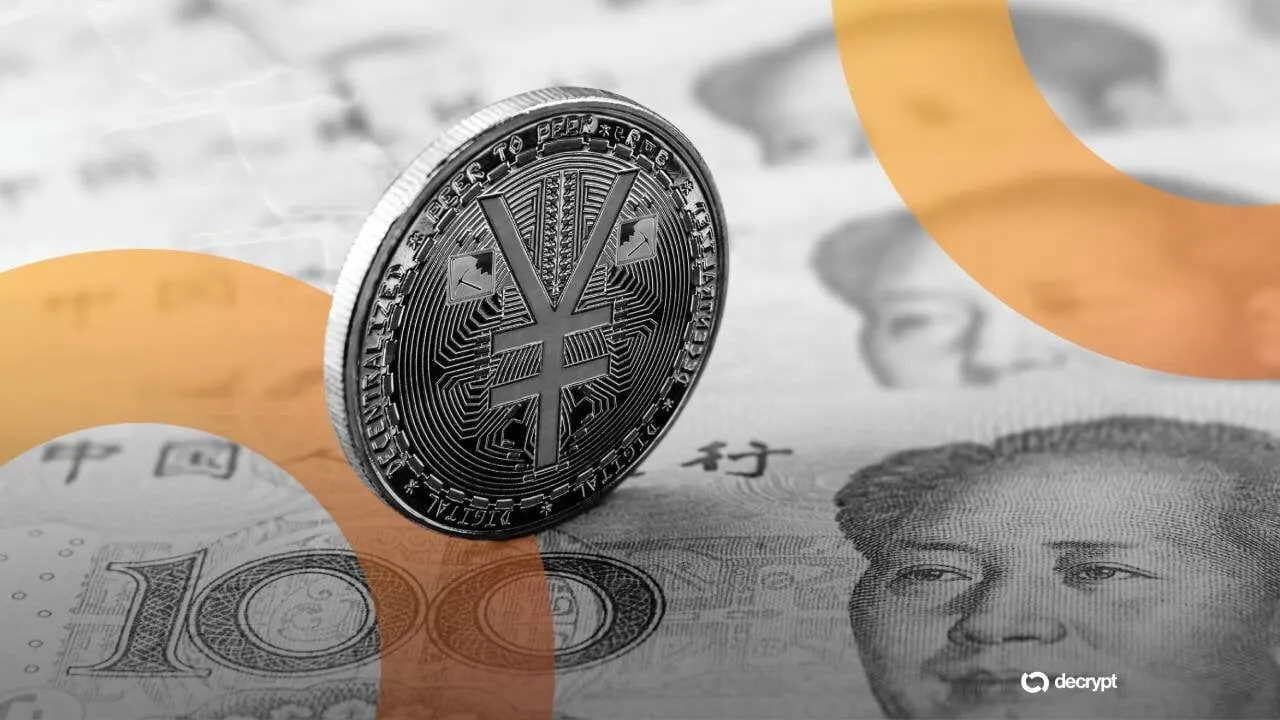In brief
- China's central bank will continue cracking down on domestic crypto operations while monitoring overseas stablecoin developments.
- PBOC Governor Pan warned stablecoins "can't meet the basic requirements like customer identification and anti-money laundering."
- Meanwhile, Japan rolled out JPYC, the first yen-backed stablecoin, and South Korea launched KRW1, its first regulated won-backed token.
China will keep a tight grip on crypto and stablecoins while maintaining scrutiny of overseas digital asset developments, as Asian neighbors launch regulated stablecoins, a representative from the People’s Bank of China said Monday.
PBC Governor Pan Gongsheng said during a conference in Beijing that the central bank will continue clamping down on domestic crypto operations and speculation, saying "the policies and measures rolled out by PBOC to combat cryptocurrency-related risks are still effective."
The central bank will work with law enforcement to "crack down on relevant activities within mainland China to safeguard economic and financial order," Pan said, as cited in a report from The Standard (HK).
The governor singled out stablecoins as a particular concern, noting they "can't meet the basic requirements like customer identification and anti-money laundering."
Stablecoins are "increasing the vulnerability of the global financial system and undermining the monetary sovereignty of some less developed economies,” Pan said, according to the report.
Pan said the PBOC will "closely monitor and assess the development of stablecoins in overseas markets."
Regional Cap Outlook
The Governor’s remarks came the same day Japanese startup JPYC launched the world's first yen-backed stablecoin, also called JPYC, with the company aiming to issue $66 billion (10 trillion yen) worth of tokens over three years.
Last month, South Korea launched its first fully regulated won-backed stablecoin, KRW1, through digital custodian BDACS and Woori Bank on the Avalanche blockchain.
ついに、日本円建初のステーブルコインJPYCが!
JPYCの発行償還が開始されました。https://t.co/X3gLEVRFs7【開発者向け】
コントラクトアドレスは契約前準備書面をご覧ください。https://t.co/hHpY0HIyCW— 岡部典孝 JPYC代表取締役 (@noritaka_okabe) October 27, 2025
Bank of China's Hong Kong shares surged earlier last month on reports it plans to apply for a stablecoin license, while Standard Chartered has expressed interest.
Users on Myriad are optimistic about stablecoin growth, with the majority predicting the stablecoin market cap will surpass $360 billion before February. (Disclaimer: Myriad is a product of Decrypt's parent company, DASTAN.)
Policy Pivot?
Chinese firms are expanding into offshore stablecoin ventures with Jack Ma’s Ant Group applying for “ANTCOIN” trademark in Hong Kong, covering stablecoins, token issuance, and transfers, while JD.com plans to seek overseas licenses to use stablecoins for cross-border B2B payments before extending to consumers.
"The role of Chinese regulators in shaping global stablecoin regulation has developed against a backdrop of relative financial stability and the absence of sanction-related pressure," Ray Youssef, CEO of crypto app NoOnes, told Decrypt.
"China's stance on stablecoins, which in many ways mirrors that of the EU, could eventually shift in the opposite direction—similar to what happened in Russia, where stablecoins are now being used by the government and corporations for international payments and foreign trade,” he added.
"The restrictions being introduced will not weaken Hong Kong's position as a global financial hub," he said. "Beijing has always needed a free economic sandbox in the form of Hong Kong—and the mainland Chinese economy only benefits from that arrangement."

